#the chronicle of higher education
Explore tagged Tumblr posts
Text

Alex Williamson for The Chronicle of Higher Education.
8 notes
·
View notes
Text
AI in the Classroom
I’ve long been an early technology adapter. I started building webpages/websites in the 90s, used turnitin.com not just for plagiarism checking but for providing rich feedback on student papers in the very early 2000s, and around that time had students write live blogs on a course website as part of their writing requirements. I didn’t catch up to the iPhone until the iPhone 3, but I owned a…

View On WordPress
4 notes
·
View notes
Text
I have TWO assignments left. TWO! That's IT! And yet I am so exhausted I keep falling asleep at my desk. Someone send help. Or an energy drink.
5 notes
·
View notes
Text
That year, a Hoover Institution economist who advised both Nixon and Reagan named Roger Freeman said the quiet part out loud when he told the San Francisco Chronicle, “We are in danger of producing an educated proletariat. That’s dynamite! We have to be selective on who we allow to go through higher education.”
3K notes
·
View notes
Text

"Look at my crowd size! Hers was fake, but MINE is real." —Donald Janky Trump
• The KKK will be the next racist fucks to squirm back out from under their rocks, just like the nazis crawled out.
For people who don’t know the history of all this: 
#traitor trump#fuck trump#vote blue#crooked donald#maga morons#republican assholes#trump is a threat to democracy#election 2024#maga congress
802 notes
·
View notes
Text
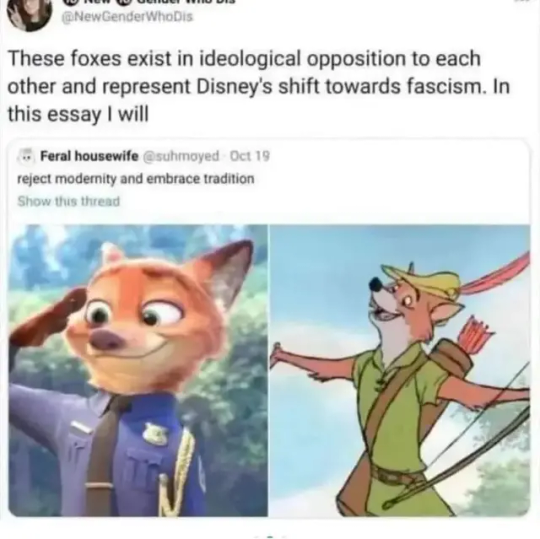

Disney's Robbin Hood marries Maid Marian at the end of the film. Since marriage between commoners and aristocracy were illegal in the time period, we can infer then that Disney's Robbin Hood uses the cannon from Richard Grafton's 16th century Chronicle at Large or latter, when Robbin Hood goes from a yeoman to a member of the aristocracy, either the Earl of Huntingdon, or the later lord Locksley.

This fox is, and always has been, a member of the aristocratic 1% defending his inherited wealth, power and privilege. His vendetta against Prince John and his denouncement of him as a tyrant is personal as Prince John infinged on the rights and privileges of the Nobles, which was illegal, and lead to him taking up arms abd leading a guerilla campaign, and as soon as a Absoulute monarch he personality agrees with returns, he bends the knee in exchangefor a pardon, the restorationon his estates, and a policaly benifical marrage.

Behold the friendly face of Absoulute hereditary power!
In DnD terms, this verson of Robbin Hood is Lawfull Evil, fighting to uphold his own legal power and staiuts against an usurper.
Sad to say it given, he gave me my sexual awakening, but this fox is, and always has been, a fascist.

I mean I'd still fuck both of them but the sex with Rob would be far angrier.
This fox, this guy right here:

He's just a depressed millennial with childhood trauma running a gig economy job. He's not even doing anything particularly illegal, as shown by the only thing Judy (a frighteningly effective cop) can find to charge him with is tax evasion. He's a high functioning borderline genius level guy running street scams due to racial profiling barring access to higher education and better jobs, and once someone gives him an in he proves very very good at solving crimes. He had no ideological stake in this, he's in DnD terms true neutral tending towards chaotic neutral, but he does risk his life to stop and actual fascist coup that was happening hidden behind a facade of public safety (looks at canera), which is something. He's an everyman antihero who sells out for a job with helthcare and/or bunny boobies at the first chance he gets, very relatable.
This Fox, is and always has been, Moray grey.

and he fucking knows it, the sexy beast.
In conclusion, Disney has always been a Conservative company filled with left leaning creators, and Sometimes thier furry kink critique of the current system leaks out and they are at their best when it does.
#disney#Robbin hood#Disneys Robbin hood#zootopia#zootropolis#nick wilde#Nicholas wilde#Nicholas piberius wilde#judy hopps#maid marian#ace attorney#fascisim#shitpost#humor#furry shit
513 notes
·
View notes
Text
read a book for me. 📚
inspired by people who were curious about the books featured in xz’s video, let’s take a look at what they are. i’d like to think these were pre approved by XZ and are related to his interests. i’m not removing tge possibility that one of these were chosen by someone from xzs or the director himself. i’m tagging this as cpn because there will be some cpn. if you don’t wanna go that route and just enjoy learning about the titles featured, then go ahead. 😉



1. Restoration House by Kennesha Bucks
You don't have to live in your dream house to make your living spaces feel more like home. Home is meant to be a place to belong. A place to gather and connect. A place of beauty. A place to restore your soul. In Restoration House, author and designer Kennesha Buycks will encourage you to embrace your home and your story so you can create mindful spaces that give life to you, your loved ones, and all who enter.
2. LORI WILDE
that red book just says the author’s name and no actual title but if you look her up, she’s all about that romance novel. here is her website if you wanna know what i mean. if you move a bit, the spine of it says “boy” so i think it maybe one of those books that has the cowboys in it!
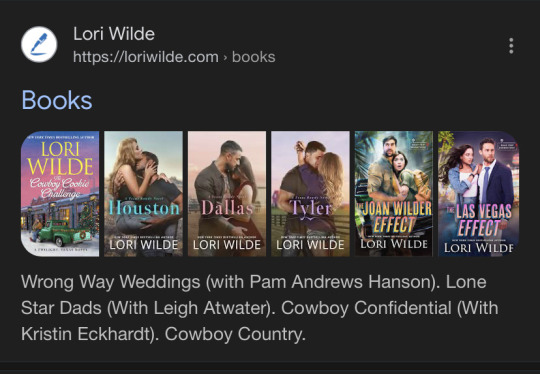
3. Next is LIT UP, which is a black book. I’m not so sure if it’s a real book and when you search it, there are a couple of contenders. Tho i personally gravitate towards p2 since it’s black and the plot of the story is something i think XZ will enjoy!
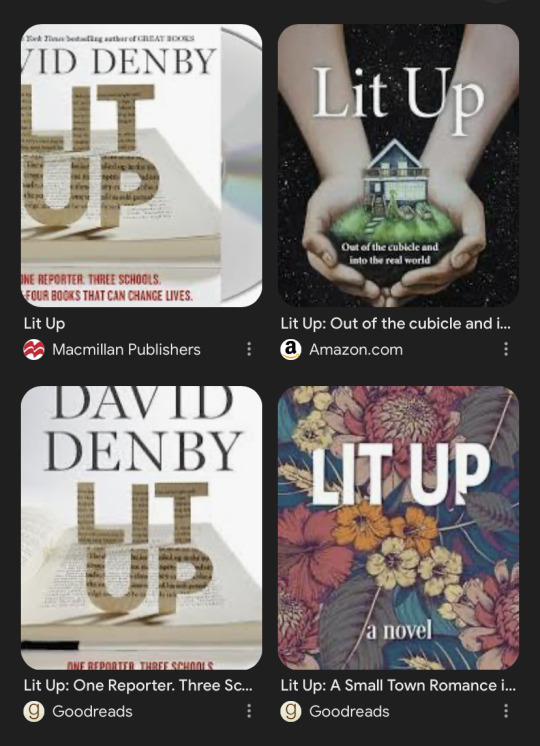
it says out of the cubicle and into the real world, it’s like him getting out of his work cubicle years ago and discovering the world.
book overview:
Eddy Gilmore found himself on society’s fringe after being exiled from Corporate America. Despite years of higher education and exemplary service inside a cubicle’s pixelated world, he had no tangible or transferable skills to offer his community. Amazingly, failure was the door into tapping dreams and gifts that had long been ignored as impractical.
This true to life adventure is a pilgrimage into the real world, a place where neighbors make and produce things that sustain life and bring joy. When their eyes were opened to the talents all around them, Eddy and his wife discovered how to produce value themselves, and sank roots into the community. By working together, they are building a life they might never need to retire from.
4. The Interior Design Handbook
Frida Ramstedt believes in thinking about how we decorate, rather than focusing on what we decorate with. We know more today than ever before about design trends, furniture, and knickknacks, and now Frida familiarizes readers with the basic principles behind interior and styling—what looks good and, most of all, why it looks good.
The Interior Design Handbook teaches you general rules of thumb—like what the golden ratio and the golden spiral are, the proper size for a coffee table in relation to your sofa, the optimal height to hang lighting fixtures, and the best ways to use a mood board—complete with helpful illustrations. Use The Interior Design Handbook to achieve a balanced, beautiful home no matter where you live or what your style is.
5. Limits of the Known
A celebrated mountaineer and author searches for meaning in great adventures and explorations, past and present.
David Roberts, "veteran mountain climber and chronicler of adventures" (Washington Post), has spent his career documenting voyages to the most extreme landscapes on earth. In Limits of the Known, he reflects on humanity’s—and his own—relationship to extreme risk. Part memoir and part history, this book tries to make sense of why so many have committed their lives to the desperate pursuit of adventure.
In the wake of his diagnosis with throat cancer, Roberts seeks answers with sharp new urgency. He explores his own lifelong commitment to adventuring, as well as the cultural contributions of explorers throughout history: What specific forms of courage and commitment did it take for Fridtjof Nansen to survive an eighteen-month journey from a record "farthest north" with no supplies and a single rifle during his polar expedition of 1893–96? What compelled Eric Shipton to return, five times, to the ridges of Mt. Everest, plotting the mountain’s most treacherous territory years before Hillary and Tenzing’s famous ascent? What drove Bill Stone to dive 3,000 feet underground into North America’s deepest cave?
What motivates the explorers we most admire, who are willing to embark on perilous journeys and push the limits of the human body? And what is the future of adventure in a world we have mapped and trodden from end to end?
6. Eat, Drink, Nap: Bringing the House Home
The quintessential style, cooking, and home interior book from Soho House, the world's leading members' club.
Since the first Soho House opened its doors over 25 years ago, we've learnt a bit about what works. Contemporary, global yet with something quintessentially English and homely at its heart, this is Soho House style explained by its experts:
- From planning a room to vintage finds: bringing the Soho House look home.
- Our House curator's advice on how to buy, collect and hang art.
- The art of a great night's sleep: how to design the perfect bedroom.
- No-fuss recipes and chef's tips: here's how to make your favourite House dishes.
- Inside Babington: our take on country-house living. Wellies optional.
- Flip-flop glamour and poolside style from Soho House Miami Beach.
- All the secrets of cocktail hour: House tonics and barman's tips.
- Spa treatment at home, DIY facials and chocolate brownies.
Eat Drink Nap, a 300-page highly illustrated book, with a foreword from founder Nick Jones, and photography from leading food and interiors photographers Mark Seelen and Jean Cazals, shares the Soho House blueprint for stylish, modern living, the Soho House way.
7. Styled
It’s easy to find your own style confidence once you know this secret: While decorating can take months and tons of money, styling often takes just minutes. Even a few little tweaks can transform the way your room feels.
At the heart of Styled are Emily Henderson’s ten easy steps to styling any space. From editing out what you don’t love to repurposing what you can’t live without to arranging the most eye-catching vignettes on any surface, you’ll learn how to make your own style magic.
With Emily’s style diagnostic, insider tips, and more than 1,000 unique ideas from 75 envy-inducing rooms, you’ll soon be styling like you were born to do it.
8. The other book i’m seeing is WINTER TID then it cuts off so again it’s tricky to confirm what it is! My best guess is WINTER TIDE but if you google that — i can’t connect how XZ will read that lol.
EDIT: adding this one seen from the alternate MV,
The Tale of the Body Thief by Anne Rice
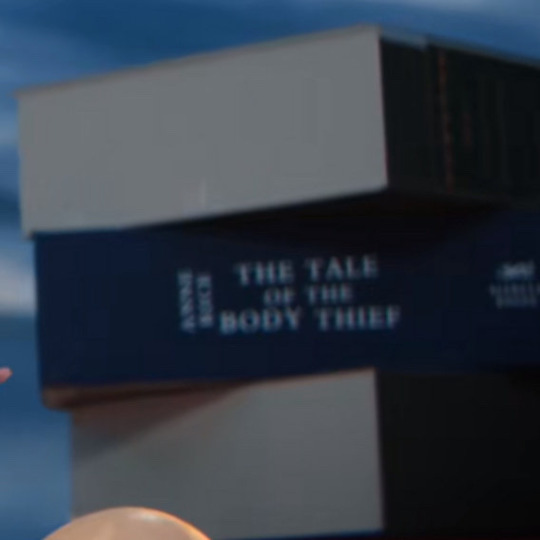

is a vampire novel by American writer Anne Rice, the fourth in her The Vampire Chronicles series, following The Queen of the Damned (1988). Published in 1992, it continues the adventures of Lestat, specifically his efforts to regain his lost humanity during the late 20th century.
=========
now let’s look at the CPN.
i see fans saying the style related books could be because of his work before. but he is more of a digital and design artist right? he does logos and stuff that can help their brand identity. i don’t remember him being an interior designer. there is also the eat, drink, nap which has topics on cooking and being a good host. these books are making me clown so hard! my head canon is xz is keeping himself busy ( as if he is not busy enough already ) with designing their home. his and wyb’s — if that wasn’t clear enough, that’s what i’m insinuating. if he isn’t traveling, i would imagine he is the type who just wants to spend time at home in between jobs. it is their home. their sanctuary. so xz would make sure that it is according to what they both want and that it’s stylish.
and when he is at home sipping wine, while waiting for Bobo, is he reading a LORI WILDE BOOK? lol. sexy millionaire cowboy you say? 👀👀👀👀

😂😂😂😂😂
or reading something like the LIT UP book which is more up his alley ( but again i’m not sure if this is the exact title )
what is out of place is limits of the known. out of place compared to the theme of the other books, but xz is someone who is into nature and climbing of sorts. but i haven’t seen him climb the way yibo did in ETU. the most popular cpn is that this is yibo’s contribution to the selection. or maybe he read it after yibo and liked it. OR he is also becoming interested in rock climbing — which is not a far off possibility.
-END.
86 notes
·
View notes
Text
Long Covid activist Meighan Stone didn't want to take her mask off. After pressuring her multiple times, an ER nurse called security on her. This public health failure happened at Sibley Hospital in D.C. These incidents are happening on a regular basis now as mask bans and proposals spread from L.A. to New York. You're not going to hear much about it in the news. When you do, it's framed as a problem for the vulnerable, with blue fascists freely associating masks with crime and hate.
None of the handful of stories that discuss these mask bans mention that we're currently in the middle of a deep Covid surge, at a million cases a day. None of them talk about mask bans in the context of Long Covid in adults and children.
A widely cited study declaring "strikingly low" rates of Long Covid in children was recently retracted due to major flaws in methodology. The researchers who pushed for this retraction are heroes and champions of truth.
Is the media covering that?
Not really.
To their credit, Time did recently run a very important piece on Long Covid in children, focusing on a recent study published in JAMA.
Here's the highlight:
They estimated that 20% of the previously infected younger children and 14% of the previously infected adolescents met that threshold [for diagnosis]. Kids infected before the Omicron wave were especially likely to fall into the Long COVID category. Those numbers are higher than some previous estimates—for example, a recent U.S. Centers for Disease Control and Prevention report concluded that only about 1% of U.S. kids had had Long COVID as of 2022. But other studies have come to similar conclusions, estimating that somewhere between 10% and 20% of kids who catch COVID-19 will develop long-term complications.
Media outlets like USA Today and NBC are also covering this study. For once, major news networks are devoting attention to something that deserves it. Of course, they're doing it after years of running stories blaming children's school performance and developmental delays on smartphones and lockdowns.
Earlier this year, The New York Times published a misleading, biased story on the "long-lasting" harm of school closures. And The Washington Post recently ran a story also blaming absences on everything except Long Covid and immune system damage. Even Education Week has run pieces attributing weak academic performance to school closures and stress, not the virus itself. It's like shooting fish in a barrel. Pick a magazine or newspaper and you'll find stories like these, but very few talking about the ongoing harm of exposing children and teenagers to Covid. The ones that do are almost always sitting behind a paywall.
Absence speaks louder than words, and not just about Covid.
In 2022, barely 1 percent of all corporate television focused on climate change. That was, in fact, a record high. A year later, it fell 25 percent. That was 2023, the year we surpassed 1.5C of warming for all practical purposes. It was the hottest year in recorded history, and also the worst year for climate disasters, costing us $600 billion in the U.S. alone. Entire countries shut down because it was too hot for work or school. All that, and the corporate media spent even less time talking about the problem. Meanwhile, one columnist after another published long screeds against doomers and fearmongers, insisting that we still had plenty of time to turn things around.
A compelling piece by Ryan Hagen breaks down the unsettling relationship between western news media and the fossil fuel industry. As he points out, internal reports from companies like Exxon celebrate their campaign to turn liberal news outlets like The New York Times in favor of their own industries, convincing the public they were working hard to shift toward renewable energy when the plan was always to use it like icing on top of a cake made out of coal.
Tireless work by Amy Westervelt has chronicled the impact of these campaigns. As her research shows, climate change has morphed from a topic that 80 percent of the public felt an urgency about to, now, a divisive issue and a point that most people would rather not talk about. On top of that, think tanks like the Atlas Network have made a major push to criminalize peaceful climate protests and turn public opinion against activists. A Yale study found that more than 60 percent of Americans hardly ever hear anything about climate change now.
And if you bring it up...
You're a doomer.
There has been a concerted effort across the internet to paint anyone who actually cares about the future as a deeply unhinged fearmonger. Meanwhile, social media giants like Meta have relentlessly censored information about Long Covid.
Have you noticed?
Nate Bear pulled the curtain back on how the media works roughly a year ago. As he puts it, "A lot of the stories you see in the headlines are the result of a PR agency. And depending on the news, the PR agent might not send out a release en-masse but “sell in” the story as an exclusive to just one outlet... Every day a proportion of all news you read starts at just a handful of these agencies."
PR firms are constantly wooing journalists, creating an atmosphere where conflict of interest is more of a feature than a bug.
Caitlin Johnstone did a thorough breakdown of mass media bias. Perhaps the most egregious example: MSNBC reporter Krystal Ball leveled blunt but accurate criticism of Hillary Clinton's 2016 campaign and correctly predicted that she would lose against Donald Trump because of all her neoliberal baggage. In response, the Clinton campaign threatened the entire network "not to provide any access during the upcoming campaign." The head of the network told Ball that she "could still say what I wanted, but I would have to get any Clinton-related commentary cleared with the president of the network."
So, she couldn't say whatever she wanted.
Right?
Johnstone cites a piece by Jeff Cohen in Salon that also outlines the peer pressure, groupthink, and careerism that dominates the newspapers, magazines, and mainstream news networks in the U.S.
As she further explains:
Journalists either learn how to do the kind of reporting that will advance their careers in the mass media, or they don’t learn and they either remain marginalized and unheard of or they get worn down and quit.
Christopher Hedges, who left The New York Times after a written reprimand for criticizing the Iraq War, has gone on to describe in disturbing detail how the U.S. media caters to the Israeli government, continually overlooking its war crimes. An outspoken critic of U.S. policy, Hedges has endured persecution for speaking the truth, including the cancellation of his news program for defending other writers and real journalists from charges of antisemitism.
Another outspoken critic, Mehdi Hasan, was dropped from MSNBC for speaking out over Palestine. As Sharon Zhang wrote after the decision, "Hasan has been one of the only news anchors on a major broadcast outlet speaking up against Israel's brutality." He was also one of the few news anchors who told the truth about Covid. As Hasan recently made clear in The Guardian, it's imperative for Democrats to take a stronger, pro-humanitarian stance on Gaza and break with Biden's approach, which has sparked outrage and disgust across the left.
Hasan makes a remarkable point in this column, looking to history for cues about how Democrats need to act to ensure history.
It's not vibes.
It's guts.
Nobody really remembers Hubert Humphrey, LBJ's vice president who lost the 1968 election to Richard Nixon by about a percentage point. It's a lesson worth talking about. Humphrey was losing badly because he couldn't stand up to his own party, the Democrats, who were actually very, very pro-Vietnam War. He managed to close the gap considerably in the 11th hour of the race, finally standing up to his own party and promising to end the war if he became president. Hasan wonders what would've happened if he had trusted his gut sooner.
Well, history gives us a few clues. After all, Nixon did end the war. In the decades since, the Vietnam War has gone down in history as one the biggest mistakes the U.S. ever made. Psychologists use it as a case study of entrapment in escalating conflicts. It's a touchstone used to rate our other failures.
Time and again, history tells us that doing the right thing actually serves political expedience far more than vibes.
Democrats could ensure a landslide victory if they would just take a clear stance on our biggest threats and challenges. They could be honest about Covid. They could stand up against mask bans. They could stand up against genocide. They could renew their promise to take on climate change.
We're not seeing that.
Instead, we see the same groupthink and indirect censorship that dominates the news media. It's not a surprise, given how entwined they've become.
Look at what's happening to Taylor Lorenz.
Outlets like The Washington Post and NPR, who pride themselves on their devotion to democracy and diversity, have assailed Lorenz for referring to Biden as "a war criminal" in a private social media post.
Here's the worst part of NPR's story:
Lorenz has also courted controversy, online, in print, and in real life. During the peak of the pandemic, and since its ebb, she has inspired mockery from conservatives over her insistence on wearing masks, even outdoors. She has cited autoimmune issues as the reason.
Look at the verbs here. Far from objective, they describe Lorenz as "insisting" on wearing a mask "even outdoors," and then frame her autoimmune issues not as a reality but as a reason, almost an excuse. For the record, multiple studies have shown that Covid spreads outdoors, especially at crowded events.
This is what writers and real journalists deal with as they try to do the right thing. It's disturbing to watch.
Both Jared Yates Sexton and Sarah Kendzior have expressed an ambivalent reluctance to get on board with the vibes as the DNC hosts their national convention. The kindest thing Sexton can say is that "It was a masterful feat of political theater" as organizers clambered to put down pro-Palestinian protests during speeches and tilted cameras away from violence and toward more soothing, therapeutic shots of Tim Walz with his family.
As Kendzior writes, "Today both the Democratic and Republican parties operate on cult logic, which means they sometimes have the same policies, but wrapped in different rhetoric--because cultists will abide anything so long as their leader is the one pushing it. Policies they would protest if they were carried out by the other side are suddenly deemed acceptable when pushed by their own."
The same goes for media coverage.
It's worth pointing out that Kamala Harris no longer supports a ban on fracking. She no longer supports a single-payer healthcare system, otherwise known as "Medicare for all" which would provide healthcare access to everyone. Her stance on border patrol and police funding have all shifted right. The media signs off on it, saying "Progressives said they’re disappointed but still support her as she works out the best strategy to defeat former President Donald Trump — even if it means leaving their cause behind."
But it's not just causes getting left behind.
It's human beings.
Is it simply a desire or a wish that nurses don't call security on us because we want to wear masks at an ER, like Meighan Stone? Do we have to leave our human rights behind so we can ensure our human rights?
Do we have to lay down our lives for vibes?
That's the current groupthink.
So there you have it.
The media doesn't report the truth. They spend about 1 percent of their time on things that actually matter. Politicians cater to an underinformed public, creating a self-fulfilling prophecy that leads to nurses calling security on immunocompromised patients for wearing a mask, while newspapers and networks fire real journalists for daring to do their jobs.
It's really something, isn't it?
It doesn't help when readers and viewers complain anytime someone salts their mood with the truth. In an era where free, independent content matters more than ever, it's also harder than ever to come by. How are content creators supposed to tell the truth or talk about things that matter when they're constantly being reprimanded, penalized, and punished every time they try?
We desperately need a free press, and we need a public that supports a free press and not silos of dueling echo chambers.
You get what you support.
It's that simple.
#covid#mask up#pandemic#covid 19#wear a mask#coronavirus#sars cov 2#still coviding#public health#wear a respirator
90 notes
·
View notes
Text
In light of the recent Supreme Court ruling on student debt forgiveness in Biden v. Nebraska, it seems it might be useful to revisit why American students have so much student debt.
Ironically, it all dates back to Reagan's and the Republicans' decision to cut back on funding for public colleges and universities in order to avoid the possibility of having an "educated proletariat."
So it isn't surprising that is is Republicans who were opposed to any government debt forgiveness for student loans. THEY DON'T WANT TO HAVE EDUCATED CITIZENS. The poorly educated are much easier to manipulate and control.
In 1970, Ronald Reagan was running for reelection as governor of California. He had first won in 1966 with confrontational rhetoric toward the University of California public college system and executed confrontational policies when in office. In May 1970, Reagan had shut down all 28 UC and Cal State campuses in the midst of student protests against the Vietnam War and the U.S. bombing of Cambodia. On October 29, less than a week before the election, his education adviser Roger A. Freeman spoke at a press conference to defend him. Freeman’s remarks were reported the next day in the San Francisco Chronicle under the headline “Professor Sees Peril in Education.” According to the Chronicle article, Freeman said, “We are in danger of producing an educated proletariat. … That’s dynamite! We have to be selective on who we allow [to go to college].” “If not,” Freeman continued, “we will have a large number of highly trained and unemployed people.”
#ronald reagan#public higher education#educated proletariat#roger freeman#student debt#supreme court#student loan forgiveness#biden v nebraska
643 notes
·
View notes
Text
Intro post 💞💞
Who is this:
Tis I, Katie!! <3 I use she/her pronouns and I’m 18 years old. My handle is a reference to My Fair Lady and TMBS!
What happens here:
I post about the things I’m interested in! Things you’ll see here:
- Keeper of the Lost Cities
- Lord of the Rings
- Newsies
- Wicked
- Star Wars
- Chronicles of Narnia
- BBC Merlin
- H.I.V.E. (the Higher Institute of Villainous Education)
- The Mysterious Benedict Society
- Percy Jackson
- The Inheritance Games
- Skyward
- A Ballad of Songbirds and Snakes
- The Hunger Games
- The Land of Stories
- Miraculous
- random things I find funny
And occasionally whatever happens to be going on if I feel like posting!
If you’re on this account and you want to show support to the Lime and Lemon Cartoon, which currently exists in YouTube shorts, my cousin and his partner would really appreciate that!!
Rules
Be a decent human—so like, no racism ableism sexism or hate speech of any kind
SFW only—this blog is mostly dedicated to a children’s book series!
If you want to send a truly ridiculous anon (such as political fanfiction in my inbox—yes trumpeo and jilliette anon I see you) send it to @katies-anonymous-post-box :)
Communication
Feel free to send me asks or DM’s! Also feel free to tag me in things, I don’t mind and I’ll be glad you thought of me!
Have lots of fun I’m always open to talk!
I hope you like my blog 💞💞
~Katie
139 notes
·
View notes
Note
RANK the TSC main girlies
Emma, Clary, Cordelia and Tessa (also Dru if u feel like adding her)
sorry it took so long to reply anon these were just decomposing in my drafts for a couple days :3

1. Clary Fairchild
She may not be for everyone but I love her; she’s everything. She’s been targeted, harassed, and threatened by her own father and brother- the people who were supposed to protect her- and she’s still able to fall victim to a-lot of things not just in the shadow-world but in the fandom (GENDER DISCRIMINATION).
And hey, there’s nothing wrong with favouritism In characters, but blatantly disregarding her entire survival and depression by calling her an ‘unimportant’ run-of-the-mill YA protagonist that can easily be pushed aside for suddenly more ‘complex’ characters? The line is drawn. She just deserves more recognition.

2. Emma Carstairs
Her trilogy (The dark artifices) was the first that got me really into the chronicles. I’d dabbled here and there but tda was basically my first love, so therefore she’s automatically pretty high on my list.

3. Tessa Gray
Great (although depressing) story and plot line for not just a warlock but for a character. She really resonates with me as an infp and a bookworm, too.

4. Dru Blackthorn
Reading TDA, I really felt a kinship with Dru even though we didn’t even get that much POV content out of her. After twp is released, she’ll probably be even higher on my list but for now, she’s at a four until we see more of her journey.

5. Cordelia Carstairs
Definitely brought much needed diversity for main female characters in tsc, and it was really interesting to be able to be educated on all the Persian culture. But I never really connected with her character and point of view the way I wanted to be able to (which is okay, a lot of people like Daisy!) and that’s the reason why she’s so low.





#tsc#the shadowhunter chronicles#clary Fairchild#Cordelia Carstairs#emma carstairs#Tessa gray#dru blackthorn#tda#the dark artifices#tmi#the mortal instruments#tid#the infernal devices#clockwork princess#Cassandra clare#shadowhunters#shadowhunter chronicles#twp#the wicked powers#tlkof#the last king of faerie#the last shadowhunter#the last prince of hell#clary fray#Tlh#the last hours#chain of thorns#chain of gold#lady midnight#blackstairs
28 notes
·
View notes
Text
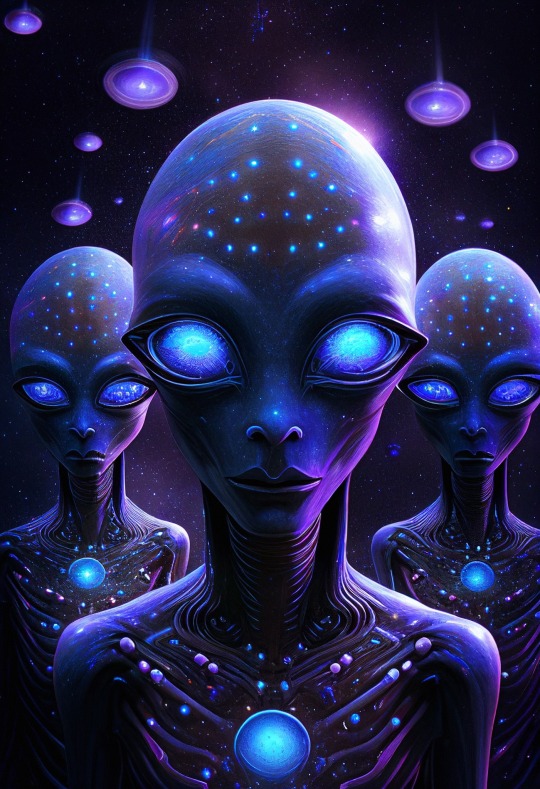
🔹The Sirians🔹 Talon Abraxas
Uncovering Your Cosmic Origins: Traits, Gifts & Soul Mission of Sirian Starseeds on Earth
The Sirius Star System: Home of Sirian Starseeds
Sirius binary star system located approximately 8.7 light years from Earth in the Canis Major constellation. Comprises Sirius A, the brightest star visible in the night sky, and a smaller white dwarf Sirius B orbiting Sirius A. Sirius B was once a larger, brighter star than Sirius A in the distant past before evolving into a white dwarf.
Sirius is known by many names in ancient Earth cultures including “Dog Star” and “Nile Star.” Egyptians based the calendar on Sirius helical rising coinciding with the Nile annual flooding. Marked winter season for Polynesians and chronicled in ancient Vedic scriptures.
Sirius A believed inhabited by highly advanced spiritual beings focused on overseeing the ascension of the Sirius system itself. Sirius B original home of Sirian starseeds before the system underwent cosmic evolution. Sirians from advanced water planets were forced to evacuate when Sirius B transformed from a gaseous state into a white dwarf star. Although the home world forever changed, spiritual wisdom and technologies survived to pass down ensuing generations.
The Soul Mission of Sirian Starseeds on Earth
What drives Sirians to voluntarily incarnate on Earth again and again even when the planet is still so chaotic and dense? Each starseed has an overarching mission guiding its incarnations, though the specifics will vary. Here are some of the core objectives behind the Sirian Starseed soul contracts:
Activate higher dimensional portals and light grids on Earth’s power points and sacred sites. Sirians are encoded with advanced sacred geometrical information and wisdom from Atlantis which can energize and stabilize the crystalline grid now rising.
Anchor light and frequency through their energy field and presence. By simply existing in a high vibration of love, gratitude, and inner peace, they raise the resonance of their environment and touch all souls they contact.
Awaken humanity to its true origins, unlimited potential, and purpose for being here now. Sirians remind us of our divine nature and push us to expand our limited beliefs.
Prepare humanity for open contact with the galactic community of benevolent interstellar civilizations. Sirians educate people on ETs and bridge the gap between human and cosmic perspectives.
Teach advanced technology and innovation to be responsibly integrated for the planet’s greater good. As technically skilled as they are spiritually adept, Sirians guide how humanity can evolve through technology without misusing it.
Be spiritual teachers, healers, and leaders who reveal higher truths and inspire people to live in harmony, peace, and unity. Their wisdom and grace touch people’s hearts.
Protect and speak up for the vulnerable, oppressed, excluded, or environment. Sirians act from a place of selfless compassion that honors all life.
Help shift humanity out of duality consciousness, fear-based programming, and rigid belief systems by embodying Unconditional Love and unity consciousness.
As multidimensional light beings, Sirians work on many levels and domains to uplift humanity’s understanding and play a pivotal role at this incredible time in our planet’s ascension process.
25 notes
·
View notes
Text
I'm not even remotely religious in any way, but I am begging people who are going to write about a character going into a monastery/nunnery whatever to please, please, please read some of the Cadfael Chronicles before you cast an entire population of people as fire-and-brimstone, self-mutilating, repressed, fanatical zealots.
For the uninitiated, the Cadfael Chronicles was a long series of medieval-set (specifically set in the 12th century) murder mysteries where the gumshoe role is taken by a monk who is well into middle age, a skilled herbalist and a former soldier and sailor who joined the Order late in his life (which for one, did happen!).
Now, there are some dated things about the writing that bears some examining; Ellis Peters (psued for Edith Pargeter) first started writing then in the late seventies (the last book was published 1994, a year before her death), and while she was a fantastic amateur self-taught scholar (she was so good she got an honorary degree from Birmingham University, having never even been to any higher education than high school) she is writing about the time of the Crusades and the Crusaders who invaded Jerusalem and she doesn't really delve that deep into the implications of her characters being involved in that, even though the characters are portrayed as the good guys, especially the titular one. But it's very possible most of the scholarship she had available for research at the time was all Western perspectives, which, you know, history is written by the winners, etc. She has a writers bias towards her protagonist, so of course he is framed fairly glowingly, though not without flaw.
But whether she had a view on the moral implications of the Crusades or not, the way she wrote medieval Britain and medieval Wales is absolutely textually fascinating because she doesn't flinch away from the fact that yes, Britain at this time was a feudal serfdom with slaves included, and was hard on marginalized people, chock full of patriarchy that did affect the lives of her female characters or that the Church was a big landowner themselves, and there was plenty of political tension and violence due to an ongoing civil war, but nonetheless the town the Chronicles are set in and the monastery where Cadfael lives is portrayed as a community.
Seriously. They don't just pray and whip themselves for 'bad thoughts'. The monks can be funny, snarky, and shy, and ambitious. They can be irreverent - yes, even about God, that thing that they are meant to be the most reverent about. They can have petty rivalries, they can annoy one another, even the Abbot, and not be sent for a backbreaking penance. They aren't thumping on bibles and telling people that if they don't make the cut that they're going to burn in hell.
They care. They take care of the children left in their charge, whether they're rich scions there to get an education or some poor thing left on their doorstep. One monk, in charge of the children, expresses real and genuine concern over a new novice that is having horrific dreams, worried that he has suffered a tremendous hidden trauma (he's right) and they're all concerned about what they can do to help him. A pair of teenagers literally fuck on one of the altars and the reaction from Cadfael is rueful amusement at young people's folly, not disgust or anger. They collect alms for the poor, redistribute everything given to them to help people survive. They crack jokes and show each other kindness and...
... look, I'm not saying that there weren't and still aren't zealots in religion. No religion is really innocent of that. And yeah, those zealots have done some pretty heinous things when they're put in charge - see Witch Burnings, Various Inquisitions, Crusades, Terrorism, etc. But I do wish writers wouldn't write about religious life like everyone who ever entered it was either a complete bag of bible-thumping assholes or just miserable all the time.
For one thing, that's really boring. Religion is a way we can tell stories about the complex reality we live in and the rules we think are important when dealing with other people. To reduce all that potential down to Miserable, Repressed, Self-Harming, Witch Hunting Jerks is intellectually lazy at best.
For another thing, you are losing the opportunity to portray a fundamentally queer experience. I don't mean they were all fucking (although some of the proscriptions that they felt the need to write down would rise your eyebrows - hand holding was apparently banned at one point); I meant that this was a group of people that took themselves out of the amatonormative status quo entirely and dedicated themselves to something that wasn't marriage, children, mercantile endeavors or anything 'normal' like that. That was, at the very least, a queer experience with clear queerplatonic overtones (not to mention, there were FTM trans monks that literally went on to sainthood, chosen gender kept intact).
And also? It just isn't historically accurate. Plenty of men and women actively chose a life outside the norm because they wanted to serve god and the community. They're just a group of people, all living together, making space for one another, all trying to serve people in whatever way they can. These people were less raging witch-burners and more Jedi without the lightsaber.
In the Cadfael books, they have brushes with zealots and they're reviled as bad guys every time. One (in the very first book) more or less fakes a whole-ass vision to manipulate the order to go to Wales and try and acquire a Welsh saint's bones and ends up doing even worse things because he believes he is destined for greatness and will get it by whatever means necessary. The head of the mission (who edges close to zealot territory himself and fully buys into the con for his own benefit) tries to buy the saints relics and causes a massive diplomatic incident as a result of this insult that makes him look like an idiot.
The other zealot that gives them trouble is a priest appointed to run the church. This man is as big a bible thumping, hellfire and brimstone dickhead as you might always picture a medieval priest to be and he is uniformly despised by both the monks and the township at large because his zealotry and strict adherence to only the letter of religious law and nothing else actively harms the community.
He's so hated, in fact, that when he (spoilers) dies, the reactions of all and sundry is mostly just relief that he's gone.
The Catholic Church has a lot of sins that it forgets more than it reckons with, but that doesn't mean that life in a monastery was all hair shirts and self-mortification, every abbot a little dictator. People have lived just fine in small communes for a lot of human history and they didn't all have small-minded tyrants continually cracking the whip. Most of them didn't.
I know it's an easy shaft to mine angst from, shoving people into an oppressive environment that they must either endure or overcome. And yes, the way we write about religion is sometimes a product of working through a complicated and traumatic relationship with it. I'm not trying to say any writer can't or shouldn't write that because your art is always supposed to be about putting parts of yourself out there, about telling the world a story about how you see it; and if you're working through something, if you need to tell a story about the scars that zealotry absolutely have and do leave, go for it, more power to you. That's a story that should and must be told.
But if your character is going into a monastery, try to remember that humans are social creatures. We make friends more than we make enemies. Even under intense tyranny, we make allegiances and form bonds and find ways to make the world were in a little bit more bearable wherever we can. And we tend to show each other compassion and mercy, even when we don't always like each other. It's true today, and it was true then too.
Monastic life was a queer experience that happened right under the noses of the dominant power structures for centuries. I think there's a story or two to be mined from that as well.
#writing#worldbuilding#character building#medieval history#religion#nicolo di genova#the old guard#brother cadfael#ellis peters#queerness#m#monasticism#monastic life
32 notes
·
View notes
Text
Fandom Trumps Hate 2024
i'm doing this again this year, so this is the page to my listing, and i've copypasted it below for ease of reading on tumblr! i really loved doing this last year, and you can see what i wrote in 2023 here for @heliological, which ended up being one of my favourite fics of the year.
this year, i'm offering for mysterious lotus casebook, all for the game and i am the single-person write-in for dmbj :'))
i really loved doing this last year and i'm really excited about the organisations i've chosen for my listing this year, thanks so much for your support <333
the actual listing:
ilgaksu Auction 1/1
Organizations this auction benefits: Bellingcat *, Civil Rights Education and Enforcement Center *, Life After Hate, Middle East Children's Alliance * (See full list. * denotes an organization that accepts international donations.)
Type of fanwork: Written fanwork Subtype(s): fan fiction (new) Fandom(s): Mysterious Lotus Casebook, All for the Game, DMBJ (Grave Robber's Chronicles) - Xu Lei Highest rating: E Length/scope: Less than 5k words. Minimum Bid: $5
Especially interested in: Character Study, Kink, Body Politics
Unwilling to address: Terminal illness, rape/non-con, pregnancy, medical settings, development of worsening disability (in the case of MLC I am open to discussion). If the request is for DMBJ, I won't write Xie Yuchen as anything but a transgender man. Regarding kink, there are some kinks I'm uncomfortable with writing (including ageplay, puppyplay, knifeplay, some involving bodily fluids or extreme body modification, etc) so please be willing to accept that and work with me. I'll always suggest an alternative if there's one I veto.
Other notes: I'm a big fan of working collaboratively and checking in throughout the process and developing the idea together. I am also happy to continue an existing WIP as my request. I also love writing AUs, so please feel free to request one!
Special interests: Poly ships, Trans or nonbinary interpretations of canon characters, Racial or cultural experiences of nonwhite characters, Ambiguous endings
auction info:
Auctions run from 8:00AM EST, 5 March 2024, to 8:00PM EST, 9 March 2024. Bids before or after this period are invalid and will not be counted. If you would like to bid on this auction:
Step 1: Check the bidding spreadsheet to find out what the current high bid is. (Note: It may take up to five minutes for a bid to appear.)
Step 2: Fill out the creator's bidding form with a bid that is higher than the current high bid. If you want to make it harder for someone to outbid you, bid higher! We will NOT notify you if someone outbids you. If you would like to track changes to this bidding sheet, select Tools -> Notification Settings. Email notifications may not be immediate, so we do not recommend relying on them near the end of the auction period. Bookmark this sheet so you can check it manually. FTH will only notify you if you are the high bidder after the auctions end.
and another link to my page in case you don't want to scroll back up
20 notes
·
View notes
Text
UNC Charlotte announced sweeping changes to its diversity, equity and inclusion programming Thursday, including eliminating three offices.
The school’s Office of Diversity and Inclusion, Office of Identity, Equity and Engagement and the Office of Academic Diversity and Inclusion all closed as part of the move— though university officials say no one was laid off as a result. Instead, 11 employees were reassigned to new positions.
The shift comes after the University of North Carolina System in May repealed its diversity, equity and inclusion policy, when all but two members of the UNC system board of governors voted to roll back the policy originally adopted in 2019.
What is DEI?
Attacks on diversity, equity and inclusion initiatives, often referred to simply as “DEI,” began gaining traction in early 2023. Conservative politicians targeted policies intended to attract and retain candidates of color at universities, corporations and government agencies. Since then, 85 anti-DEI bills geared toward programs at colleges have been introduced in 28 states, according to the Chronicle of Higher Education.
While proponents of DEI programs say they’re a strategy to correct injustices from decades of exclusionary practices, opponents say they’re discriminatory toward white Americans and violate the First Amendment.
UNC System President Peter Hans said the change was motivated by the university’s duty to remain neutral on political matters.
“We have well-established laws and policies that prohibit discrimination, protect equal opportunity, and require a safe and supportive learning environment for all students,” Hans said in a written statement this May. “We will continue to uphold those responsibilities.”
What will changes look like at UNC Charlotte?
The UNC system’s previous policy required the employment of a diversity and inclusion officer at each of the system’s 17 schools and the creation of a UNC system diversity and inclusion council. It’s been replaced with a new one titled “Equality Within the University of North Carolina.”
The new policy “requires offices and positions at all System institutions to comply with institutional neutrality, refrain from compelling others’ speech and refrain from promoting political or social concepts through training or required beliefs,” UNC Charlotte Provost Jennifer Troyer and Vice Chancellor for Student Affairs Kevin Bailey wrote in a letter to students and faculty Thursday. “Specifically, it does not allow any institution in the System to have offices that focus on diversity, equity and inclusion.”
According to the new policy, the university may not promote a particular set of concepts related to race and sex nor include them in any types of training for employees.
The new policy still allows faculty full discretion in decisions around research design and course material.
Students and student organizations still are allowed to engage in political and social advocacy as long as they do not speak on behalf of the university.
“UNC Charlotte is committed to creating a culture of belonging for everyone, from every background and identity,” a university spokesperson wrote in a statement to The Observer. “The university’s care and concern for its students is unchanged, as are student organizations, which help students build community and identity with others.”
Money previously allocated to diversity, equity and inclusion will now be diverted to “student success,” which includes improving graduation rates, degree efficiency and student mental health and well-being. The university will continue to permit identity-based mentoring, programming and support as long as they align with student success initiatives.
8 notes
·
View notes
